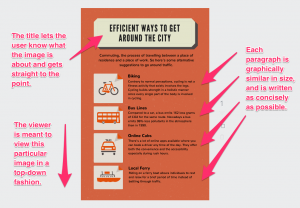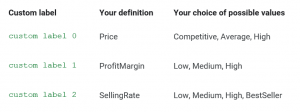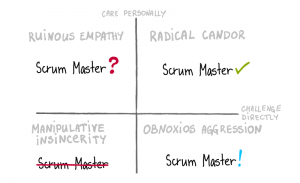
Since the earliest days of search engine optimization, there has always been some disagreement with regard to keywords. To this day, many small business owners, zealous to optimize their company websites as best they can, wonder about the best keywording principles: How many keywords should they use? What should those keywords be? Where should keywords be placed?
A key concept in any SEO endeavor is keyword research. Google AdWords provides a keyword research tool that’s invaluable, even if you’re not necessarily using it for PPC purposes. You can do research using this tool that informs all your on-site keyword efforts—showing you the best, most valuable and competitive words to use in your Web content, on your blog, and so on.
Branded vs. Non-branded Keywords
As you dip into keyword research, it’s important to understand that there are different types of keywords out there. One of the first distinctions you’ll want to make is the one about branded versus non-branded keywords.
Let’s start with branded keywords—the ones that are connected to your specific brand. Some examples of branded keywords include:
- Your website name;
- Your company name, if different from your website name;
- Misspellings of your website name; for example, you have to prepare for the possibility that some people might search for Grammar Chick instead of Grammar Chic; and
- Branded products—like Big Mac, iPhone, etc.
Often, branded keywords are the ones that prove to be the highest converting. That’s what makes it so important to optimize for these terms; they represent your best chance at turning traffic into paying customers. Additionally, it’s important for brand management. You wouldn’t want your competitor to outrank you for your own company name, would you? And can you imagine what Microsoft would do if they actually ranked better than Apple for the term iPhone? It certainly wouldn’t be good for Apple!
As for non-branded keywords, those are the ones that don’t fit into the categories above. These don’t convert as consistently, but are vital in reflecting the way people really search for information. A lot of people are going to Google for writing company rather than Grammar Chic because they simply don’t know that Grammar Chic exists; optimizing for non-branded keywords is important for reaching those users.
Informational vs. Transactional Keywords
These two broad categories of keywords can be further broken down into additional types—specifically, informational and transactional keywords.
- Informational keywords are upper funnel keywords that attract users and creates awareness. You optimize these keywords with goal of wanting to increase new users and traffic.
- Transactional ones, meanwhile, are the lower funnel and money-oriented keywords that are more likely to turn into a transaction of a lead, depending on website’s goal.
These types of keywords function differently, and you may want to emphasize one type over the other simply depending on the type of content you’re writing (that is, where in the sales funnel you’re trying to reach people). As you seek to determine whether a keyword falls under the informational or transactional heading, I recommend asking the following three questions:
- Use AdWords to see the kind of traffic and the kind of conversions associated with each keyword. A high-converting keyword is more likely to be transactional; a keyword with lots of traffic but not many conversions is probably informational.
- If you are not running AdWords or you don’t have sufficient data, look at Google’s keyword planner and find out the cost per click for each keyword (it’ll be abbreviated CPC) as well as the competition. If the CPC and competition are high, then that is more likely to be a transactional keyword because marketers often don’t spend a ton of money on informational ones.
- Finally, you can always just copy and paste each keyword into Google to see what Google returns. For example, if you type in “how to get an oil change,” most of the search results are blogs and articles, which are informational. But if you search for “where to get an oil change” then the results will change and show nearby mechanic shops, Yelp results, etc.—businesses where you’d make a transaction.
(34)









